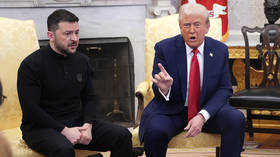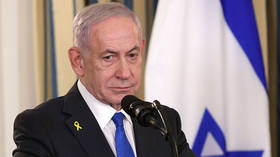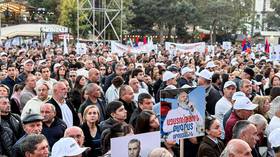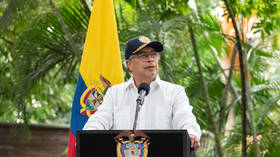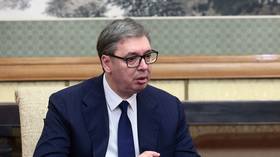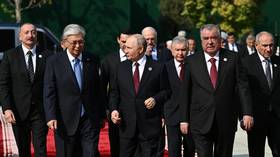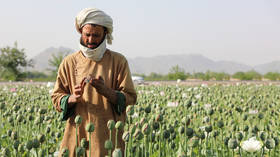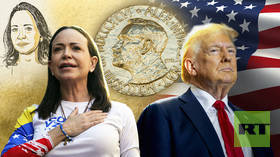Nigerian leader declares ‘worst is over’
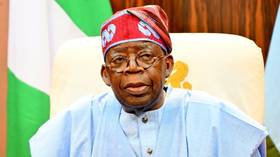
Nigerian President Bola Ahmed Tinubu has marked his country’s 65th Independence Day with a speech that combined tributes to founding leaders with a report on reforms he said has pulled Africa’s most populous nation back from economic collapse.
Speaking from the capital, Abuja on Wednesday, Tinubu said policies rolled out since he took office in May 2023 – including the scrapping of fuel subsidies and the devaluation of the naira – were now delivering results. The reforms had been the source of widespread protests over the rising cost of living in the West African nation.
“Our administration inherited a near-collapsed economy caused by decades of fiscal policy distortions and misalignment that had impaired real growth,” the president said.
He added that his government chose reforms over “business as usual,” and prioritized long-term stability.
“Less than three years later... I am pleased to report that we have finally turned the corner. The worst is over,” Tinubu stated.
He said the economy grew by 4.23% in the second quarter of 2025 while inflation fell to 20.12% in August, the lowest in three years. He cited higher oil output, record non-oil revenues, and a trade surplus as signs the country was diversifying beyond crude exports.
Nigeria gained independence on October 1, 1960, after decades under British colonial rule that historians widely describe as a period of economic exploitation, resource extraction, and the suppression of nationalist movements. It endured military dictatorships and a brutal civil war before returning to civilian rule in 1999.
On Wednesday, Tinubu acknowledged that Nigeria’s independence has been tested by political crises and economic hardship. He said Abuja has not achieved all the dreams of Nigeria’s founding leaders, but it has not “strayed too far from them.”
“In the last 28 months of my administration… I have committed myself irrevocably to the unfinished nation-building business,” he stated.
Tinubu’s government has sought to diversify Nigeria’s global partnerships and address the country’s long-running economic challenges. In January, it became a BRICS partner state, a move officials believe could strengthen trade and investment.



